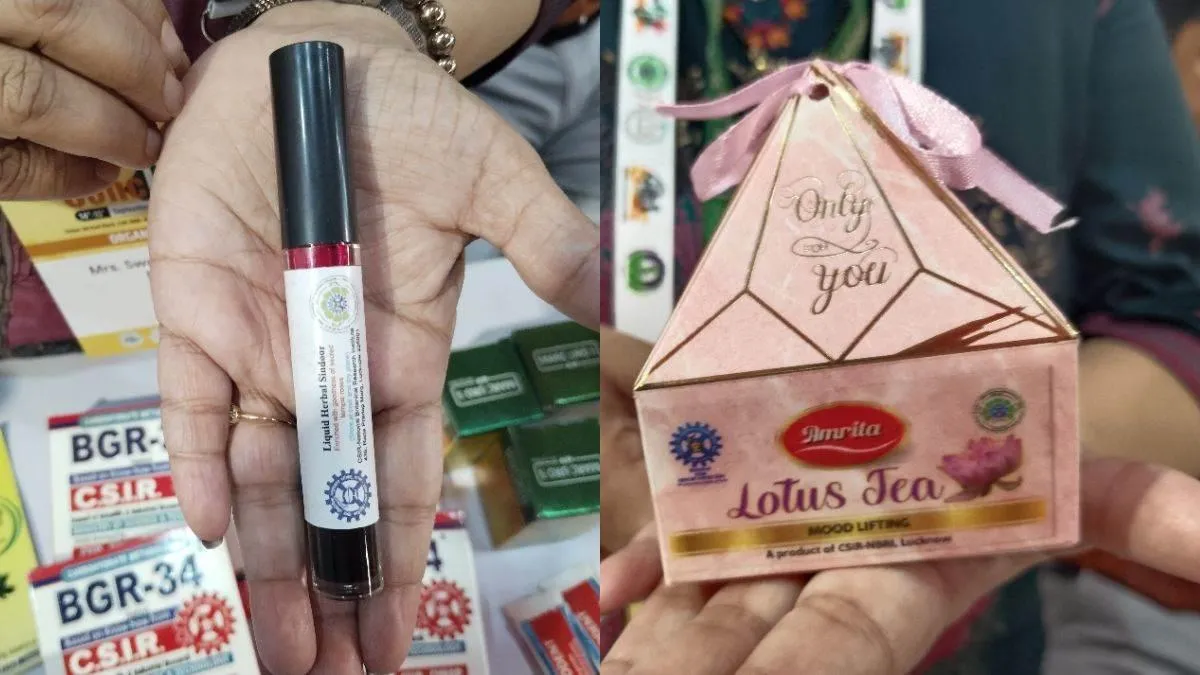- By Kamakshi Bishnoi
- Mon, 15 Sep 2025 04:46 PM (IST)
- Source:Jagran News Network
The National Botanical Research Institute (NBRI) has unveiled several innovative products at the Startup Conclave, showcasing advances in environmental conservation, health, and agriculture.
Swati Sharma, Senior Technical Officer at NBRI’s Business Development Department, announced the development of a chemical-free sindoor created by recycling waste flowers from temples. Unlike traditional sindoor, which often contains lead and other harmful metals, the new formulation uses zero chemicals, natural colours, and safe binding agents. Researchers have described it as a significant step in both waste management and environmental protection.
ALSO READ: SKMCH To Deploy Outsourced Staff For Unclaimed Ward; Health Dept Issues Dengue-Chikungunya Alert
NBRI has also introduced a range of lotus-based beverages. The first, a lotus petal drink, is described as refreshing, antioxidant-rich, and hydrating, with detoxifying properties.
Another product, a drink prepared from lotus rhizome (root) and honey, naturally develops up to 4 per cent alcoholic content through fermentation. Rich in polyphenols and flavonoids, it may improve heart health and immunity. Both drinks are expected to be launched in national and international markets soon.
At the conclave, innovations from other researchers and companies were also presented. Krishna Gopal of Vishveshan House and Aromatic Pvt Ltd highlighted a sustainable agriculture model encouraging farmers to cultivate medicinal herbs, particularly turmeric.
His company extracts oil from turmeric leaves for product development and has recently created a solution that extends the shelf life of fruits and vegetables, helping farmers secure better market prices.
Meanwhile, Dr Arvind Chaudhary, a scientist from Meerut, presented research addressing the pink bollworm challenge in cotton, a major issue since 2013–14 that has reduced yields of the crop known as "white gold." Under an MoU with NBRI, a new gene providing resistance in Bt cotton has been developed and is currently under trial. Once released, this innovation is expected to increase yields and protect cotton farmers from pink bollworm infestations.
